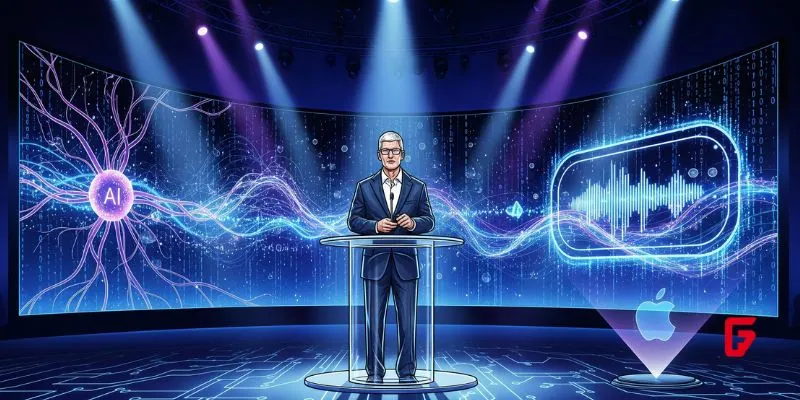The usually reserved halls of the Steve Jobs Theater recently buzzed with urgency as Tim Cook gathered Apple’s global workforce for a rare, all-hands meeting. Facing a pivotal moment, the Apple CEO delivered a direct message: the future of Apple hinges on mastering artificial intelligence. As competitors surge ahead, Cook’s call wasn’t simply about catching up—it was about redefining the future, much like Apple has done with devices before. But this time, the road is rocky: delayed Siri upgrades, poached AI talent, and seismic internal upheaval are forcing Apple to reinvent, or risk losing its innovation crown.
An Unfiltered Call to Action
Cook’s speech had an unusually candid edge. “Apple must do this. Apple will do this. This is sort of ours to grab,” he declared, openly acknowledging that the company is late to the artificial intelligence (AI) party. Yet, he reminded employees that Apple has rarely been first—there were PCs before Macs, smartphones before iPhones, and MP3 players before iPods—but Apple’s magic has always been transforming what others started into game-changers. This is the playbook Cook intends to use for AI, making it clear that Apple’s pride is on the line.
Internal Struggles: Siri’s Rocky Reinvention
While AI ambitions run high, Siri has become an embarrassment. After a much-hyped demo at WWDC 2024, the promised overhaul of Apple’s iconic voice assistant has stalled. Insiders and Apple’s own Craig Federighi revealed an “original hybrid” technical strategy just wasn’t up to Apple’s uncompromising engineering standards. The path forward required ripping up old plans and betting on a next-gen architecture—one that simply cannot ship until at least 2026.
Federighi explained the frustration: “When you have an experience like asking Siri to do something, either it becomes something you can depend on reliably or it’s something, in the end, you’re just not going to use.” This candid admission was a rare insight into Apple’s usual veil of secrecy and perfectionism.
Talent Wars and Strategic Shifts
Apple’s ambition is being threatened not just by technical delays, but by a loss of brainpower. Meta’s relentless recruitment—luring away top AI engineers with huge compensation—has created turmoil in Apple’s machine learning teams. Four key researchers, including the leader of Apple’s foundational models group, have jumped ship in the past month. Morale inside Apple’s AI teams has suffered, and the company’s traditional allure is being tested as never before.
In response, Apple has brought in tough new leadership. Vision Pro creator Mike Rockwell now leads the Siri reboot, bringing a high-performance, low-latency approach from the headset world. The reshuffle signals Apple’s willingness to break silos and move at startup speed.
A Billion-Dollar AI Arms Race
Cook’s rallying cry wasn’t just motivational—it comes in tandem with an aggressive investment blitz. Apple is reportedly funneling $500 billion into AI over four years, combining capital expenditure, major acquisitions, and relentless R&D. The company has already bought seven AI-focused startups in 2025 alone and remains open to buying even bigger players, with rumored talks targeting the likes of Perplexity. Unlike rivals, Apple aims to blend privacy-first design with cloud-scale infrastructure—a hybrid approach meant to leapfrog the AI conversation and deliver super-personalized, secure experiences across its ecosystem.
Why This Moment Feels Different
Apple’s strategy remains distinct. Instead of flashy “frontier” cloud models, Apple is doubling down on device-level intelligence, privacy, and deep ecosystem integration. The goal is “AI as only Apple can deliver it”—ambient, trustworthy, seamlessly embedded in every interaction. While the market obsesses over who gets there first, Cook is betting that, as before, Apple’s take on AI will define the next era of personal technology.
Apple’s next chapter is being written under intense pressure—not just to catch up, but to prove that its legacy of reinvention and bold risk-taking remains alive. If history is any guide, write Apple off at your own peril. But for now, the company is staring down the most critical test of its 21st-century identity.














